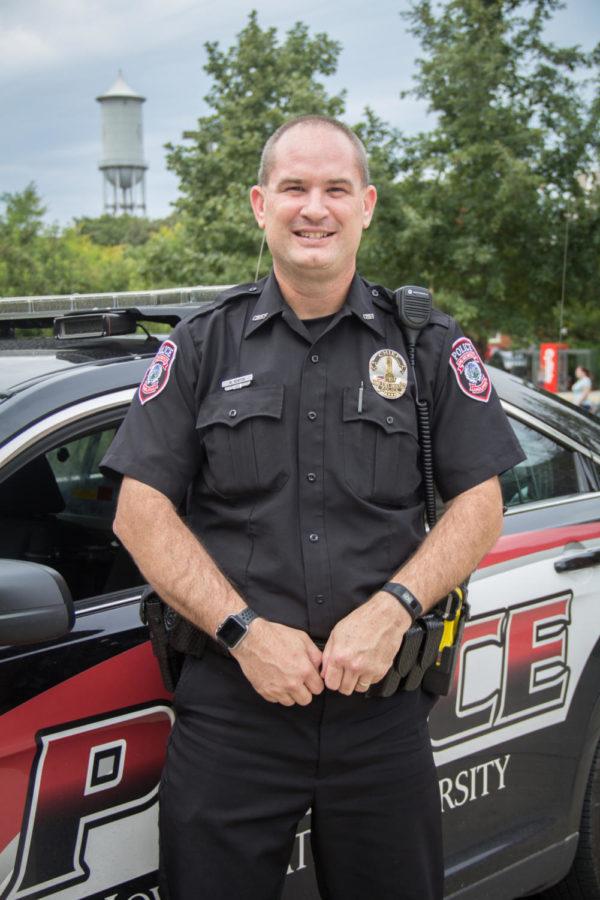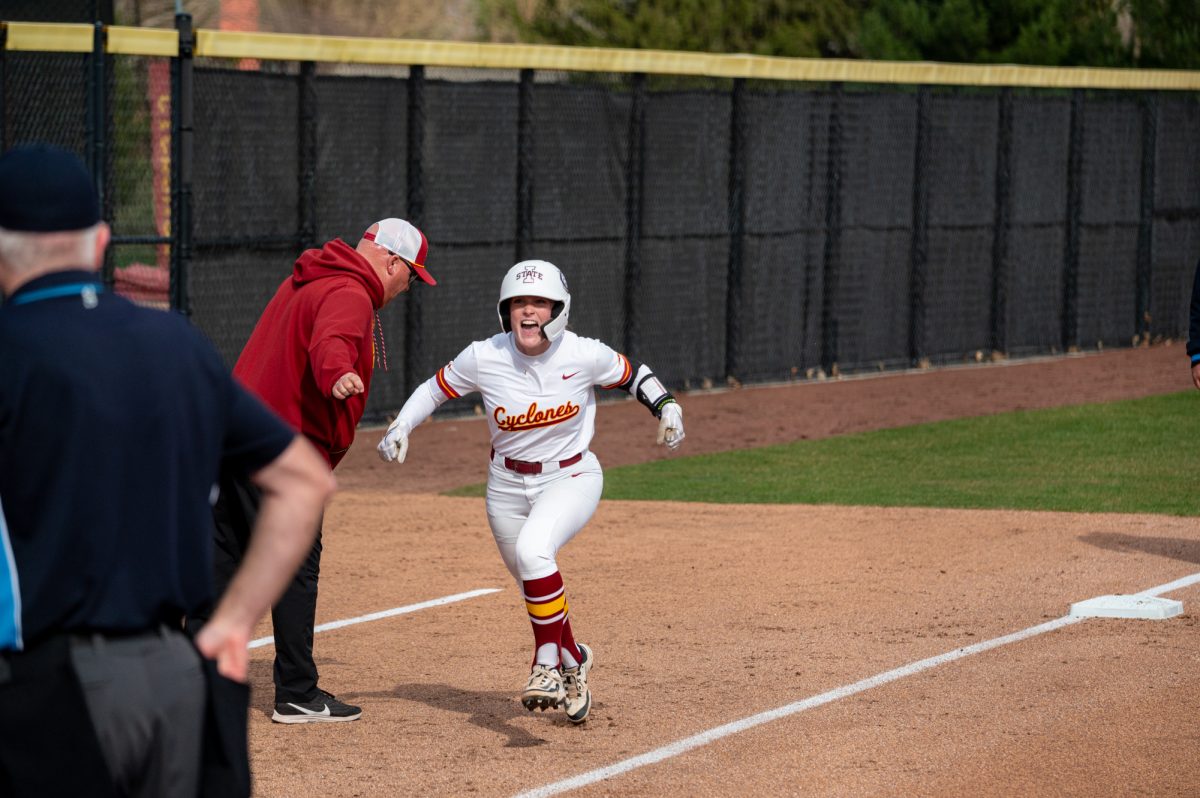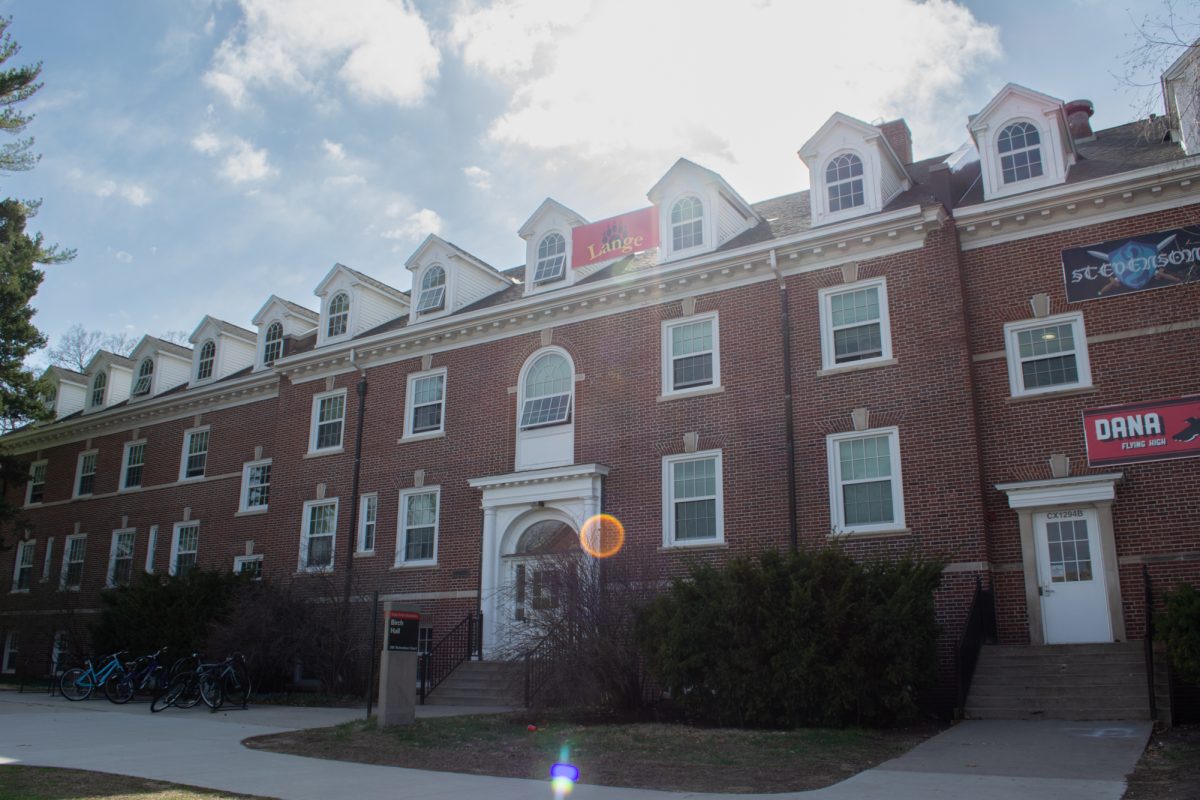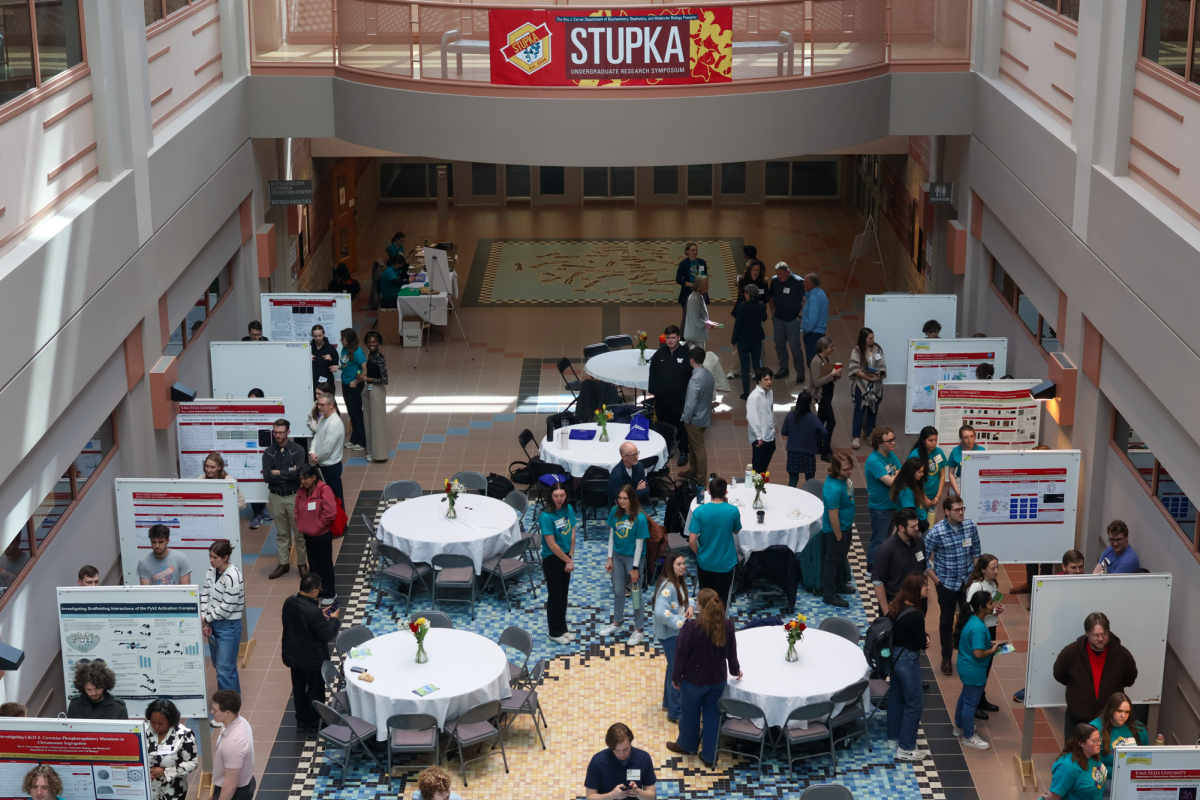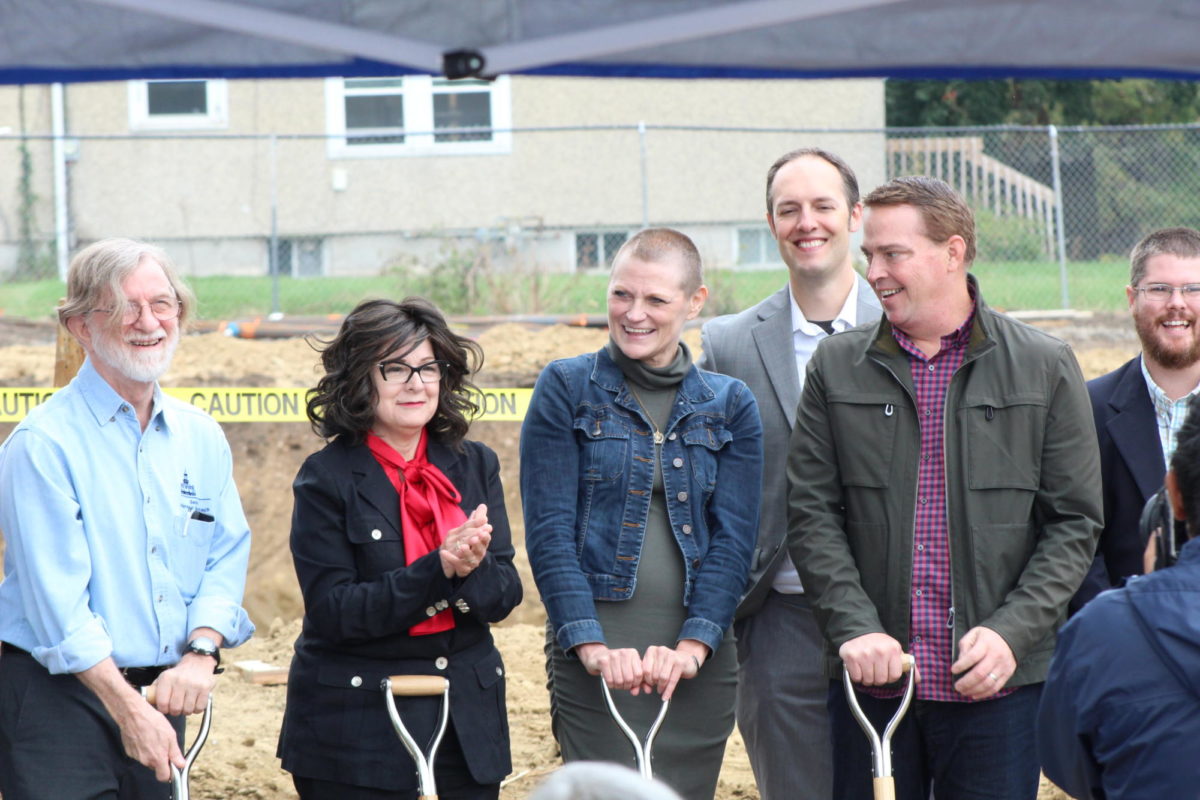Moving forward: ISU Police Chief works to better engage, build community
Mikinna Kerns/Iowa State Daily
Iowa State Police Chief Michael Newton spent the summer making changes to the department.
August 20, 2017
With a summer under his footing, Iowa State Police Chief Michael Newton is ready for the fall semester. At the forefront of his mind are building community and developing leadership.
Going into the summer — where Iowa State’s population dwindles from 36,000 students to roughly 12,000 — Newton aimed to recharge the department and asked: what are the things that we need to do to make this organization better before the students get back?
One of the solutions for Newton was changing the name of the police department’s Multicultural Liaison Officers (MLOs) to Engagement and Inclusion Officers.
“Engagement and Inclusion Officers is not just a name change — it’s a rebrand of what those officers are for,” Newton said.
Newton said one of the common things he was hearing from students, faculty and staff before summer break was confusion on the role of the police department’s Multicultural Liaison Officers when that was already a program developed within the academic departments.
“We really felt as we talked as a group and talked to faculty and staff and students that by having an Engagement and Inclusion Officer we were wrapping into the whole of the community,” Newton said.
The intent of the Engagement and Inclusion Officers are to provide outreach and assistance to all members of the Iowa State community.
The engagement aspect of the rebrand aims to establish a partnership with the community rather than just knowledge of the issues at hand. Newton said in an email part of that was “realizing bias does exist and showing a willingness to learn from each other through discussion and presence.”
As for the inclusion portion of the rebrand, Newton and the police department want all students, faculty and staff to know they are there for them.
“One of my visions is moving forward, building community,” Newton said. “And I can’t just build community with one segment of the population or pockets of the population.
“So, we’re wrapping into the LGBTQ community, we’re wrapping into the cultural community. We’re wrapping into just the average student, staff or faculty member. We wanted to be inclusive of our community — while not forgetting that there are issues, concerns specific to [different] cultures and culture climate.”
The program is also being expanded, with more officers within the department filling the responsibilities that comes with the position, such as outreach, having a greater presence on campus and providing more opportunities to interact with students in non-police settings.
“We want to engage the community differently,” Newton said. “And I also look at it as all of our officers need to be involved in engagement and inclusion — including the chief.
“I’m going to be out there going to events and talking to people because that’s how we build community and that’s how we have a successful community is that we’re engaged into it.”
Aside from the Engagement and Inclusion Officers, Newton also hired two new officers to the department. Currently, Newton said, there are 35 sworn officers and he hopes to eventually fill all 39 officer positions he’s authorized to have.
One of the new officers, Newton said, is Mandarin-speaking.
The department has also been working on new campaigns, such as a releasing a video on social media before the start of classes, letting sexual assault survivors know they care and asking them to report.
As for future programs, the department is also in the works of a “type of Crime Watch program” and crime prevention campaigns.
“Campus law enforcement needs to be more than enforcement,” Newton said. “It needs to be a part of the community.”
Newton wants to keep in mind the history of the department, even though his past 18 years of policing has been with the University of Wisconsin-Madison.
He’s worked to learn more about the community through efforts such as reviewing the past 20 years of department history during a ISU Police leadership retreat in August.
“One thing that is important to me is that you can’t forget the past. And you can’t forget where you were in the past because the past is what builds your future,” Newton said. “And for me, I needed to understand and acknowledge the past if we’re going to grow as an organization and move forward.”


